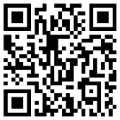Responsive Web Design Learning Media: Enhancing Student Independence in Vocational Web Programming
Abstract
Full Text:
PDFReferences
A. Haleem, M. Javaid, M. A. Qadri, and R. Suman, “Understanding the role of digital technologies in education: A review,” Sustain. Oper. Comput., vol. 3, pp. 275–285, Jan. 2022, doi: 10.1016/j.susoc.2022.05.004.
K. Asfani, H. Elmunsyah, S. Patmanthara, W. Nur Hidayat, H. Suswanto, and H. B. Awang, “Distance Learning Scheme with Remote Desktop Application for Mikrotik Configuration Practice in the Covid-19 Pandemic Era,” in 2022 5th International Conference on Vocational Education and Electrical Engineering: The Future of Electrical Engineering, Informatics, and Educational Technology Through the Freedom of Study in the Post-Pandemic Era, ICVEE 2022 - Proceeding, Institute of Electrical and Electronics Engineers Inc., 2022, pp. 216–220. doi: 10.1109/ICVEE57061.2022.9930444.
S. Subtianah, “Transformasi Pembelajaran Melalui Integrasi Teknologi Pendidikan di Era Digital,” Seminalu, vol. 1, no. 1, pp. 390–399, Jun. 2023, Accessed: Aug. 19, 2024. [Online]. Available: http://prosiding.unipar.ac.id/index.php/seminalu/article/view/75
T. Nurseto, “Membuat Media Pembelajaran yang Menarik,” J. Ekon. dan Pendidik., vol. 8, no. 1, Apr. 2012, doi: 10.21831/jep.v8i1.706.
E. A. Patall and J. Zambrano, “Facilitating Student Outcomes by Supporting Autonomy: Implications for Practice and Policy,” Policy Insights from Behav. Brain Sci., vol. 6, no. 2, pp. 115–122, Oct. 2019, doi: 10.1177/2372732219862572.
J. Marlina, “Self-Management: Aspek Penting dalam Meningkatkan Prestasi Akademik Mahasiswa,” J. Altern. Wacana Ilm. Interkultural, vol. 12, no. 01, p. 2023, Aug. 2023, doi: 10.60130/ja.v12i01.115.
J. van den Akker, B. Bannan, A. E. Kelly, N. Nieveen, and T. Plomp, Educational Design Research: An Introduction. Enschede: Netherlands Institute for Curriculum Development (SLO), 2013. Accessed: Aug. 19, 2024. [Online]. Available: http://international.slo.nl/publications/edr/
B. Jackling, “Perceptions of the Learning Context and Learning Outcomes,” in Encyclopedia of the Sciences of Learning, Springer, Boston, MA, 2012, pp. 2577–2579. doi: 10.1007/978-1-4419-1428-6_700.
K. C. Moen, “The Impact of Multi-Media Presentation Format: Student Perceptions and Learning Outcomes,” Scholarsh. Teach. Learn. Psychol., vol. 7, no. 4, pp. 278–287, 2021, doi: 10.1037/stl0000265.
B. Gan, T. Menkhoff, and R. Smith, “Enhancing students’ learning process through interactive digital media: New opportunities for collaborative learning,” Comput. Human Behav., vol. 51, pp. 652–663, Oct. 2015, doi: 10.1016/j.chb.2014.12.048.
T. Låg and R. G. Sæle, “Does the Flipped Classroom Improve Student Learning and Satisfaction? A Systematic Review and Meta-Analysis,” AERA Open, vol. 5, no. 3, Jul. 2019, doi: 10.1177/2332858419870489.
J. Wong, M. Baars, D. Davis, T. Van Der Zee, G. J. Houben, and F. Paas, “Supporting Self-Regulated Learning in Online Learning Environments and MOOCs: A Systematic Review,” Int. J. Hum. Comput. Interact., vol. 35, no. 4–5, pp. 356–373, Mar. 2019, doi: 10.1080/10447318.2018.1543084.
V. Kubik, I. G. Frey, and R. Gaschler, “PLAT 20(3) 2021: Promoting Self-Regulated Learning: Training, Feedback, and Addressing Teachers’ Misconceptions,” Psychology Learning and Teaching, vol. 20, no. 3. SAGE PublicationsSage UK: London, England, pp. 306–323, Oct. 19, 2021. doi: 10.1177/14757257211036566.
B. Yu, “Self-regulated learning: A key factor in the effectiveness of online learning for second language learners,” Frontiers in Psychology, vol. 13. Frontiers Media S.A., p. 1051349, Jan. 12, 2023. doi: 10.3389/fpsyg.2022.1051349.
Z. Xu, Y. Zhao, J. Liew, X. Zhou, and A. Kogut, “Synthesizing research evidence on self-regulated learning and academic achievement in online and blended learning environments: A scoping review,” Educational Research Review, vol. 39. Elsevier, p. 100510, May 01, 2023. doi: 10.1016/j.edurev.2023.100510.
J. van der Graaf et al., “How to design and evaluate personalized scaffolds for self-regulated learning,” Metacognition Learn., vol. 18, no. 3, pp. 783–810, Dec. 2023, doi: 10.1007/s11409-023-09361-y.
DOI: http://dx.doi.org/10.17977/um010v6i22023p%25p
Refbacks
- There are currently no refbacks.
 | Letters in Information Technology Education (LITE) |

1.png)
1.png)
4.png)
1.png)
.png)
.png)

3.png)
1.png)
1.png)

3.jpg)